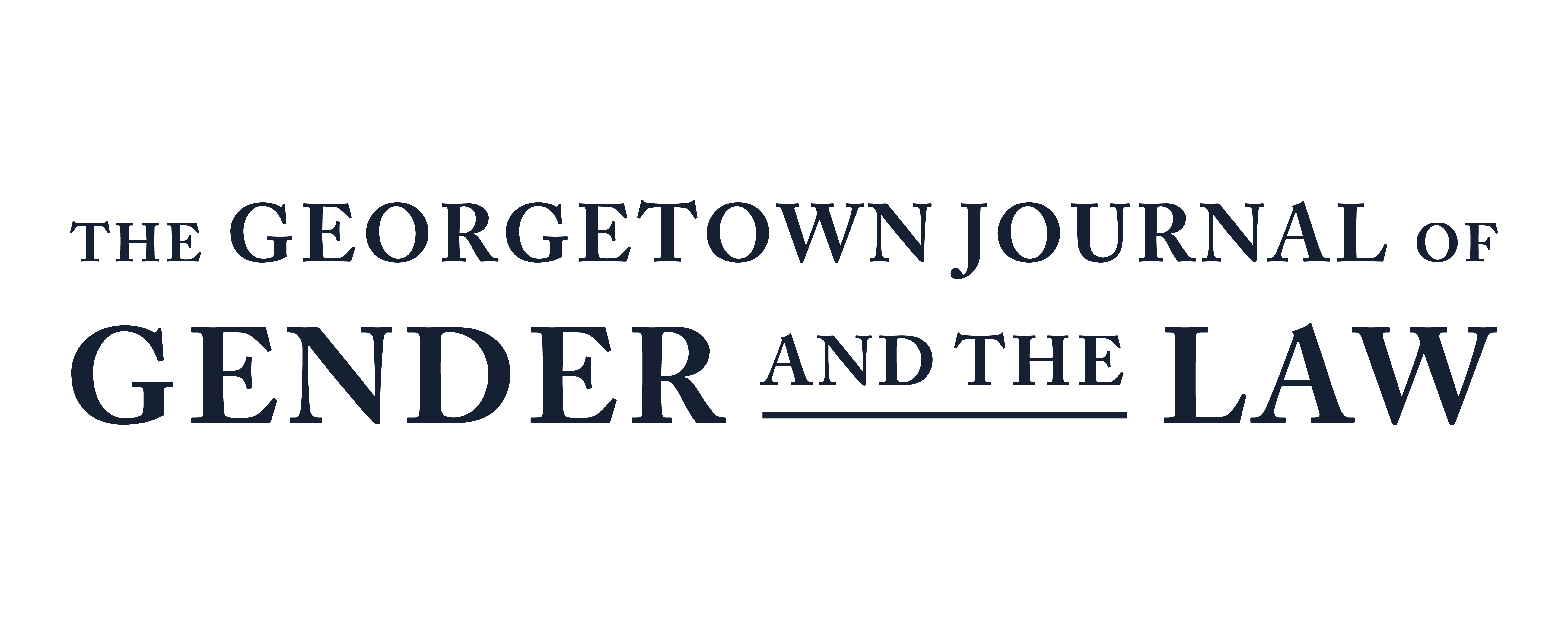“Unfit” Women Across the Atlantic: Reproductive Control of Incarcerated Women in the United States and United Kingdom
Locked behind bars and out of sight, society has long considered women who are incarcerated to be “unfit” – unfit to be pregnant, unfit to mother, and unfit to make decisions about their own reproductive lives. This article sheds light on the lives of these “unfit” women and the reproductive restrictions they endure while incarcerated […]
It’s Not Squarely Settled: Why States Can Still Attempt to Limit Interstate Travel for Abortion Despite a Fundamental Right to Travel Between States
This Note explores the tension between the fundamental right to interstate travel and state abortion restrictions limiting out of state travel for abortions. Legal scholars long contemplated what would happen if Roe and Casey were overturned. That day has come, and states are now free to regulate abortion subject to rational basis review. . . […]
Say Gay: Why H.B. 1557 is an Unconstitutional Infringement on Minors’ First Amendment Right to Receive Information
The Supreme Court has historically overlooked the right to receive information in its free speech jurisprudence. But children have clear First Amendment rights in school, including the right to hear. By grounding its argument in the liberty model of free speech, this Note makes a case for how laws like Florida’s “Don’t Say Gay” bill […]
Shantay Drag Stays: Anti-Drag Laws Violate the First Amendment
This article explains why virtually any law aimed specifically at restricting, suppressing, or banning drag performances violates the First Amendment. The key reasons for this are as follows. First, drag performances are expressive conduct protected by the First Amendment. Second, drag performances generally do not fall into any uncovered category of speech, such as obscenity. […]
When Gender-Affirming Healthcare Becomes Illegal, Will It (Still) Be Tax-Deductible?
More than twenty states currently limit or ban access to gender-affirming medical and surgical care for minors, and three more have bans that went into effect on January 1, 2024. For many transgender youths and their families, this will mean crossing state lines to obtain appropriate medical care and make this often-costly care even more […]
The Inherent Bad Faith of the NCAA’s Use of Title IX to Shield Its Illegal Business Practices
This Essay examines the moral and policy implications of the NCAA’s use of Title IX to argue for legislative immunity from antitrust and employment law. Regardless of if there is merit to the NCAA’s in-court assertions that Title IX prevents employment status, revenue sharing, and other reforms, the NCAA’s requests to Congress for legislative protection […]

